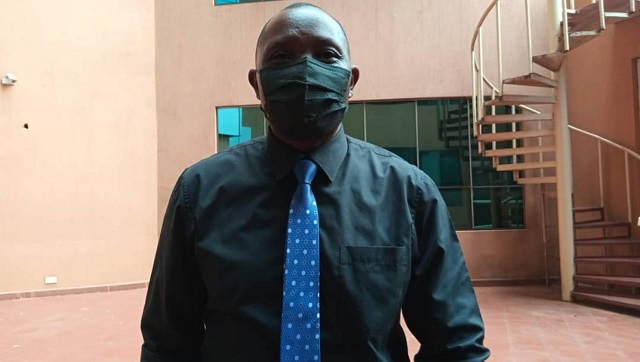
Kampala, Uganda | THE INDEPENDENT | Robert Sempala, the National Coordinator of the Human Rights Network for Journalists in Uganda (HRNJ) has warned politicians to desist from interfering with the operations of the media in an unlawful manner. He was responding to the recent threats by Kwania District LCV chairperson, Geoffrey Alex Ogwal Adyebo and the Acting District Education Officer Andrew Omunu to eject journalists from the district for allegedly carrying negative stories.
Ogwal Adyebo was speaking during the award of the best performers in the recently released Primary Leaving Examinations where 185 pupils in the district passed in grade one, 1,241 in division two, 545 in division three, 409 in division four while 456 failed the exams and 37 didn’t turn up. At least 20,873 candidates registered for the exams.
However, on Friday last week, Kwania District Chairman Geoffrey Alex Ogwal Adyebo while speaking during the award of PLE best performers at Kwania district Boma ground threatened to throw journalists out of his district, accusing them of reporting negative stories in the district.
Sempala has since condemned the statements by the two district officials, describing them as barbaric, and a direct attack on the media. He asked politicians to instead engage the media to improve service delivery in the district.
Similarly, Patrick Okino, the Chairperson Lango United Journalists Association (LUJA) condemned the statements and asked journalists in Lango to stick to the best journalistic principles and continue holding the public office bearers accountable.
A report by the Uganda Human Rights Commission indicates that over 100 cases of violation of human rights were registered in both Lango and Acholi within a period of eight months. Among the cases reported to Human Rights Commission in Gulu Regional Office were physical assaults on journalists, intimidation, and confiscation of gadgets, while some radio stations were switched off by the state actors and other key radio programs faced a long-term suspension of open broadcasting.
*****
URN
 The Independent Uganda: You get the Truth we Pay the Price
The Independent Uganda: You get the Truth we Pay the Price





